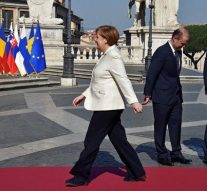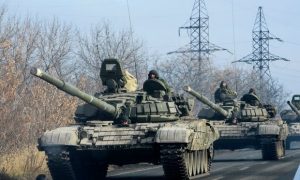
The six main challenges to the EU external policy
External Relations 27 March 2017Even if the EU’s political power is already worldwide famous, domestic and external challenges in 2016 have eroded the European Union’s image. 2016 in facts was not a happy year for the entire European integration process. Moreover, these first months of 2017, in the Eve of the Treaties of Rome anniversary, have also shown that the EU is still striving to float in open water. Starting from January, institutions, MEPs and newspapers spoke aloud about art. 329 (TFEU), finding in the “enhanced cooperation” the most concrete getaway from further political risks. One of the core challenges the EU is facing today is of course related to its multifaceted external action policy.
In the occasion of the 50th Issue of NEU Newsletter, here we will provide an overview (without any claim of exhaustiveness) of the six main trends that will draw the lines of the European foreign policy in 2017.
In a very first place, as we tried to underline in previous issues, the EU and its foreign policy will be hugely imprinted on the outcome that will follow after the elections to be held in many important Member states. In a very surprising way, the elections themselves will focus on foreign policy issues (namely immigration, trade and terrorism) and will thus exert a large impact on EU foreign policy.
In 2017 we (will) witness the results of elections in France, Germany, the Netherlands, Bulgaria and the Czech Republic, all of which are contented between the two sides of the European soul: the liberal-conservative wing against the populist one. Even if Italy may represent a clear example of this legendary fight against political forces, the biggest story will be the French election with the strong possibility that M.me Le Pen might finally become President. If Le Pen were elected, it would be a bigger crisis for the EU than Brexit, and indeed probably getting a curtain call on the EU geopolitical irrelevance.
April the 29th has been defined as the starting line of Brexit negotiations by British MP’s and PM May herself.
2016 changed almost everything, except incertitudes about Brexit and its further developments. While on the British side, Theresa May focuses on keeping the conservative party coherent and united and trying to squeeze out of negotiations any possible advantage – might it be financial or political – for UK, she plays anyway with little thought of how this might affect, or in some ways be affected by the dramatic change of the more general global order.
In contrast with a mainstream opinion it is quite hard that Brexit will provide a so-called “domino effect” pulling other Member states in demanding special deals from the EU. Whether the public opinion likes it or not, the EU is a club. A closed (but inclusive) club with rules and benefits that can be obtained only if you follow the rules. This has of course set the debate over the soundness of those rules and benefits literally on fire. Anyway, this “club-attitude”, as during the Greek crisis, makes the EU extremely hardline in its negotiations. It is hard to make previsions but it is anyway sure that Brexit and related negotiations will deeply contribute to redraw the EU foreign policy.
2017 has already marked the beginning of Russia triumphant and aggressive return to the West. In any case, President Vladimir Putin will rejoin the table that rule the world, after a quite long period of interruption, beginning with his attendance at the G-7 meeting in Taormina (Sicily, Italy) at the end of May. I a very likely perspective, Russia’s participation to the meeting would mark a turning point and the beginning of the end of the transatlantic consensus that still holds together the sanctions regime against Russia. The even more assertive traits of both politics and the political discourse “Made in Moscow” have lead the EU to take a more coherent and firm position on security and defence issues. US President Trump more than once complained about NATO and its profound “usefulness”, gaining lots of consensus throughout the world, especially in Russia. In this context Europe finally decided to get serious about defence and 2017 may be the year that Europe finally fulfill huge step forward for its own defence. In March, some 12-15 EU Member states have launched a formal proposal aimed at building a “Permanent Structured Cooperation” as considered by the EU treaty. The proposal sets new spending targets common strategic objectives. The concept of a will-be-EU army has to be figured out in coordination with NATO efforts in fostering, while not simply maintaining, peace and international security.
In the follow up of strong debates, 2017 has witnessed the EU Parliament voting on the recognition of China with market economy status.
While POTUS is striving to redesign the world order, an alliance will emerge between Europe and China. This will probably translate in a joint effort to defend the global free trading system and the WTO, while, on the other hand, keeping alive the Paris Agreement on Climate Change. Insights of the new trends are observable in the different political approaches of President Trump and President Xi Jinping. While Trump delivered his “America first” speech, Xi Jinping gave in facts a globalist oriented speech in Davos, during the World Economic Forum, in the direction of a wider openness to trade and political and diplomatic relations.
A fifth political challenge will be posed by the effective sustainability of the EU-Turkey refugee deal. Attacked by every side, Europeans and Turks called the deal inadequate or even immoral. This is also going to be a strong element of discussion during European elections and campaigns, in which anti-Europe or Eurosceptic movements and parties will have the chance to blame the deal, picturing it as a huge failure and a sell-out of the EU institutions and values in defending its own borders. Nonetheless, it is pretty clear that such deal will manage to resist to 2018 at least, because of its importance to both the German and Turkish governments. If the German government believes it needs the deal to hold back another wave of refugees, Turkish President Erdogan is definitely ambivalent about the EU, and the rupture in diplomatic relations with several EU Member states, sided by an aggressive political opposition, is chopping off the legs to the refugee deal.
Finally, going back to the European Union and its membership, an increasing gap between the core of the EU and the periphery of the EU, particularly the new Eastern European member states, will drift toward a greater marginalization of this area and forcing it to deal with their challenges alone. This will touch a consistent number of them, for example Greece and Bulgaria, that will have to manage challenges at the EU border, taking only on their shoulders the huge responsibility to get the job soundly done.



